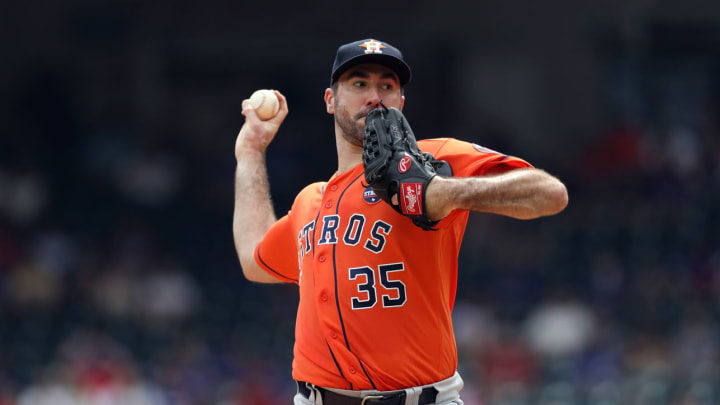The Case For the Houston Astros To Win the World Series

With the addition of Justin Verlander, the late-season rebounds of Dallas Keuchel and Collin McHugh and the development of Brad Peacock, the Astros' postseason rotation can get by without Lance McCullers Jr., who last made a quality start on June 8. What stands out more is their offense, which led the league in runs per game (5.54), batting average (.282), on-base percentage (.346) and slugging percentage (.479).The team's slugging percentage is MLB’s highest since 2003, and their 128 OPS+—OPS adjusted for ballpark and league scoring environments—is a post-1900 record, bettering the 1927 Yankees’ 127. Only two postwar teams, the 1976 Reds and 1982 Brewers even reached 120, which is to say 20% more productive than average.
The Astros' lineup gives opposing pitchers very few places to hide. They're capable of fielding an entire lineup full of players with an OPS+ of at least 100, with Marwin Gonzalez in left (instead of rookie Derek Fisher) and Evan Gattis at DH (instead of Carlos Beltran). They narrowly missed becoming the first team since the 1953 Brooklyn Dodgers with five batting title-qualified players with a 130 OPS+ or better: second baseman and MVP favorite Jose Altuve (165), superutilityman Gonzalez (150), centerfielder George Springer (145) and rightfielder Josh Reddick (135) all made the cut, while third baseman Alex Bregman (129) fell just short. Shortstop Carlos Correa (160) missed qualifying by 21 plate appearances due to the thumb injury that sidelined him for 42 games.
Remarkably, the Astros do their bashing while striking out less than any other team. In a year of record-setting strikeouts, 137 players had whiffed at least 100 times through Friday, but only two, Springer and Beltran, are Astros. The team's 17.2% strikeout rate is four points below the AL average, and only about a point ahead of the 2014 and '15 Royals squads whose contract-centric ways charmed so many pundits.
